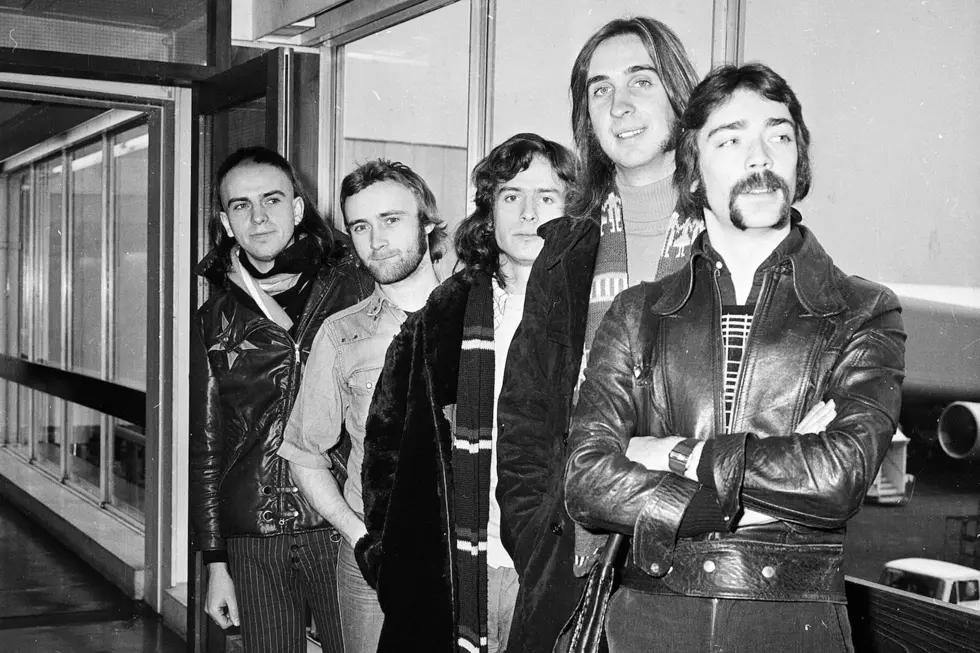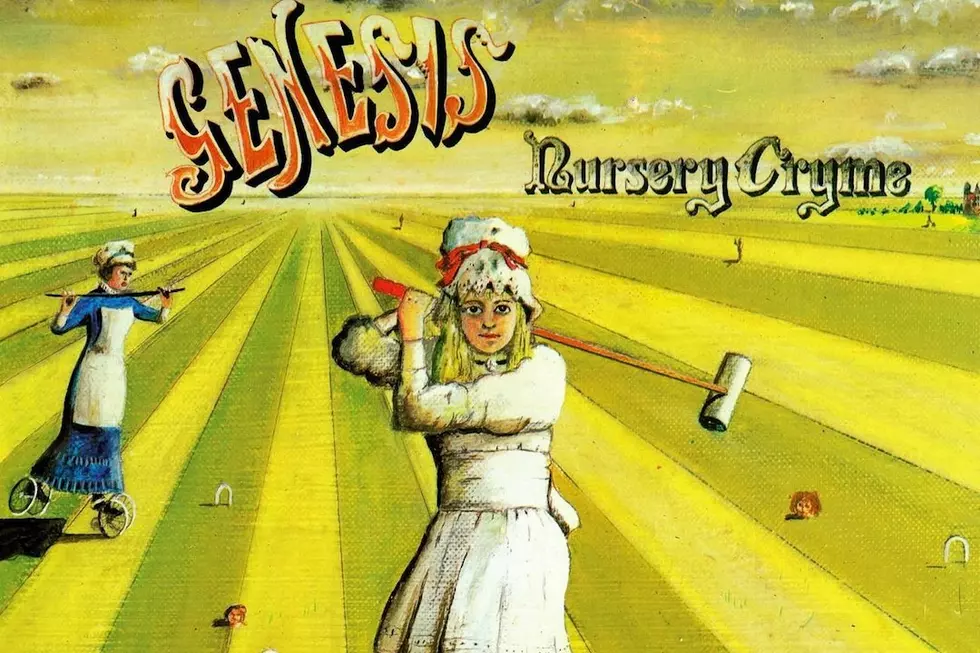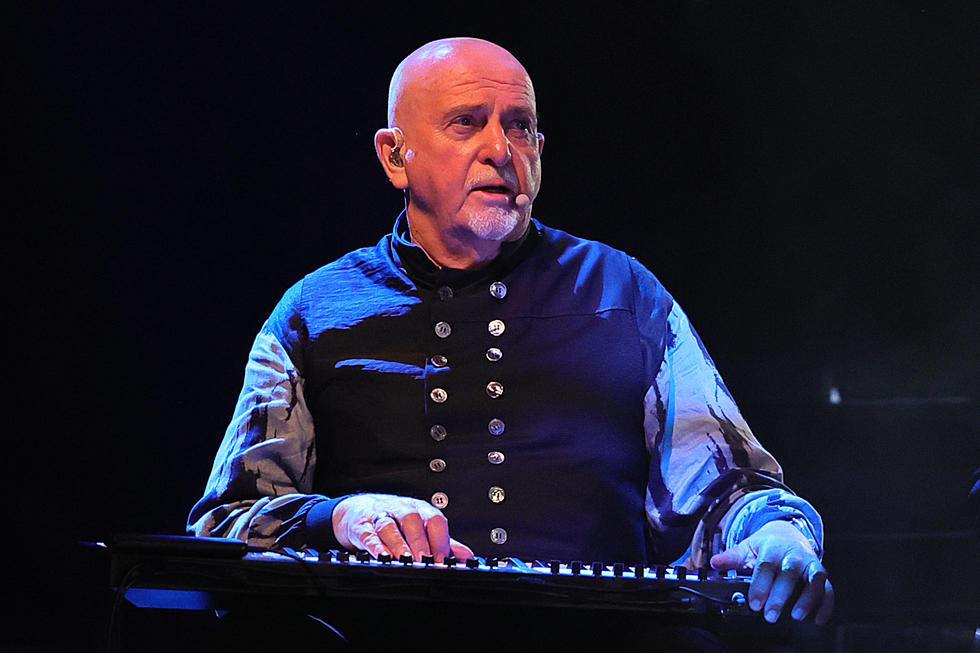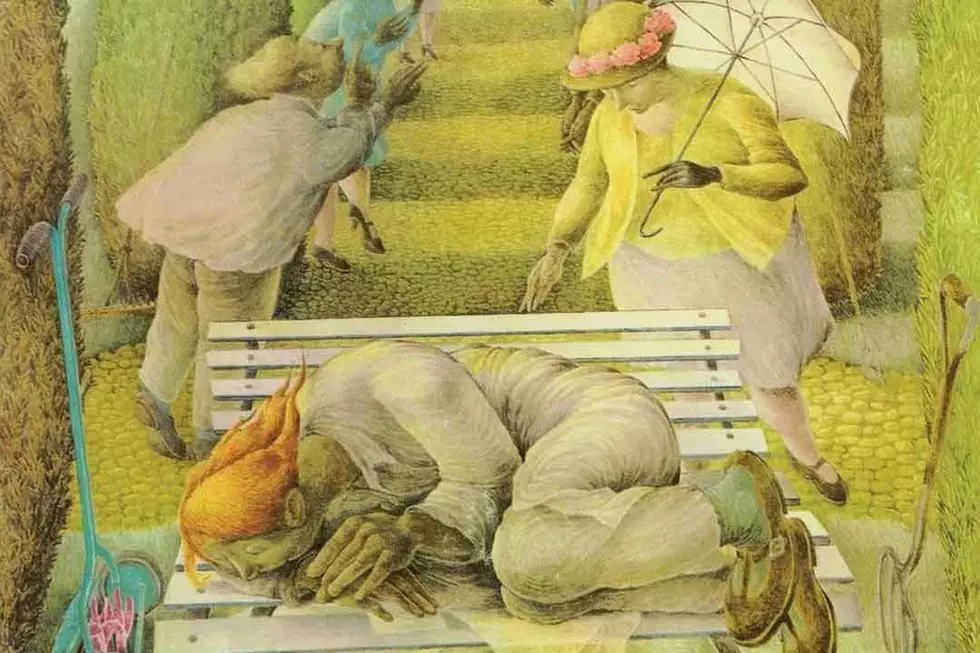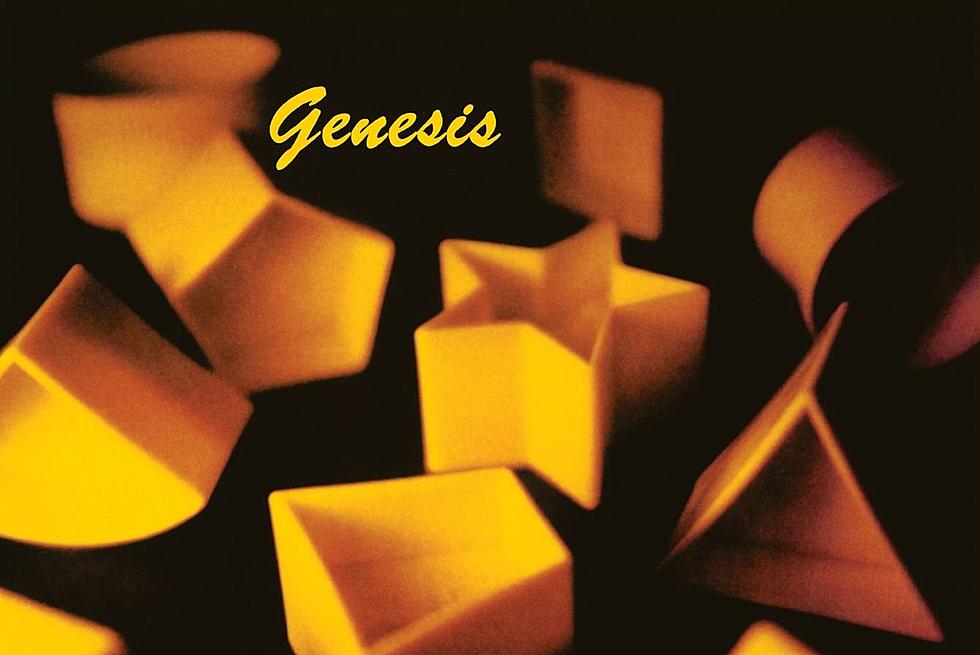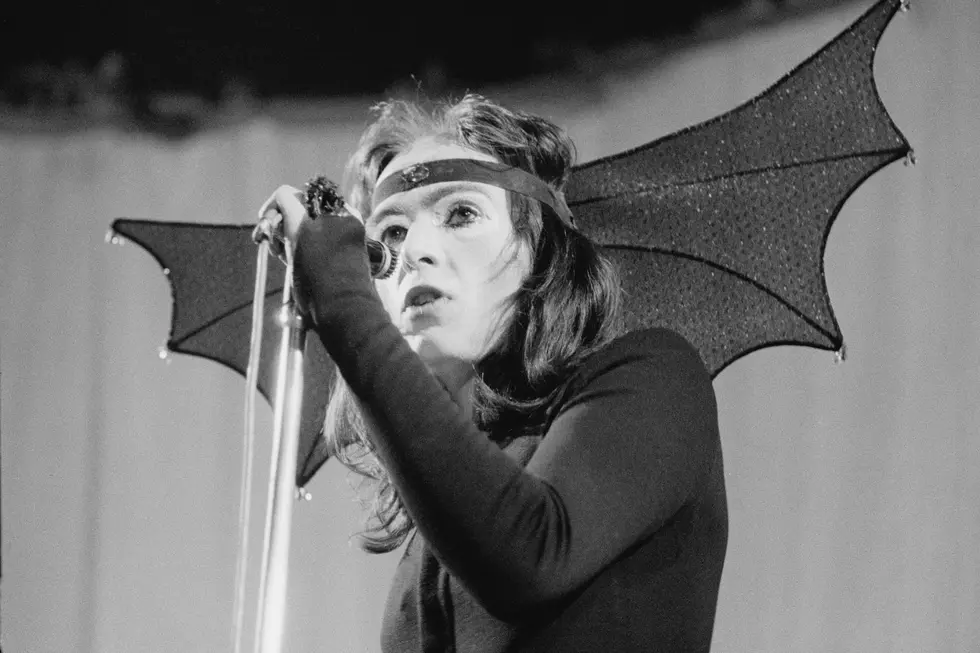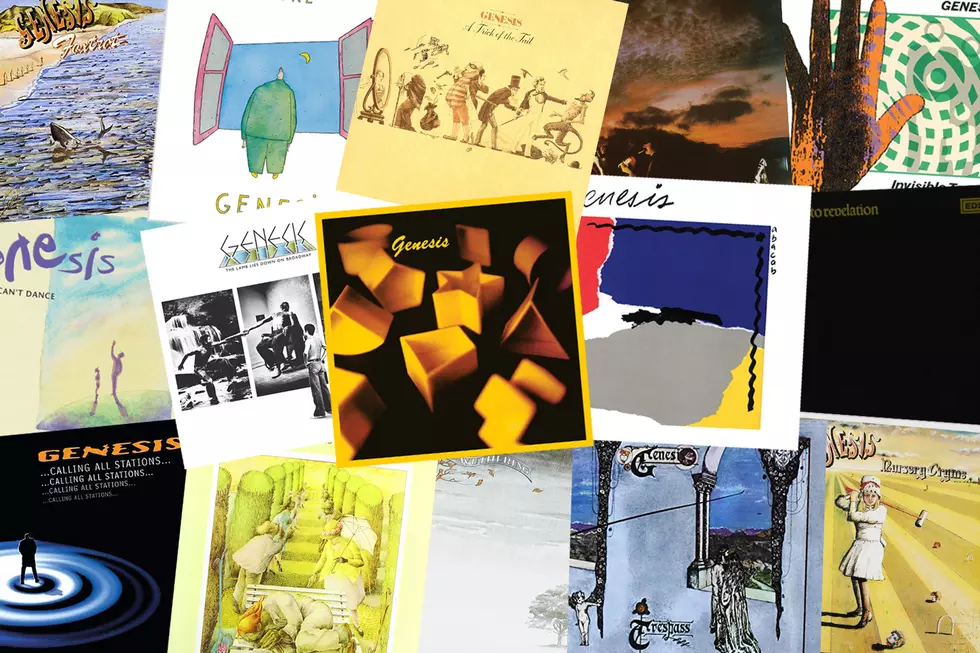
Genesis Lineup Changes: A Complete Guide
Genesis are best known these days for their string of glossy pop hits in the '80s. But their rock cred stretches back further than the hitmaking Tony Banks / Phil Collins / Mike Rutherford era. Most notably, there's the prog-centric version of the group from the '70s that also included Peter Gabriel and Steve Hackett, but the band started, ironically enough, playing the kind of melodic pop that eventually turned Collins into a superstar . . . and this was years before he even joined Genesis. In the late '60s, Banks, Rutherford and Gabriel were paired with original guitarist Anthony Phillips and a revolving-door of drummers on records not too far removed from '80s smashes like 'Invisible Touch.' But as Gabriel's songwriting vision matured -- and guitar impresario Hackett blossomed -- Genesis began to explore the long-form songcraft that helped cement their place in rock history. It was only after Gabriel and Hackett departed that Genesis turned full circle back toward more radio-friendly songs.
1967–1968
Tony Banks / Peter Gabriel / Anthony Phillips / Mike Rutherford / Chris StewartStewart, who was classmates with Banks and Gabriel, appears on the group's first two pop-oriented, Jonathan King-produced singles: 'The Silent Sun' and 'A Winter's Tale.' Genesis came out of two bands the members played in at school, the Garden Wall and, with the addition of Rutherford and Phillips, Anon. King eventually dumped Stewart, and the drummer laid down his sticks to become a farmer.
1968-1969
Tony Banks / Peter Gabriel / Anthony Phillips / Mike Rutherford / John SilverSilver took over for Chris Stewart just before the recording of 'Genesis to Revelation,' the band's lightly regarded 1969 debut, but was gone a year later. He may be best remembered as the subject of Phillips' 1973 solo cut, 'Silver Song,' on which he was joined by former bandmates Rutherford and Collins.
1969-1970
Tony Banks / Peter Gabriel / Anthony Phillips / Mike Rutherford / John MayhewEven as Genesis inched closer to finding their own voice with the pastoral proto-prog of 1970's 'Trespass' (which produced the concert favorite 'The Knife'), their lineup would change once again when guitarist Phillips left for a solo career. (They also got rid of producer Jonathan King, who seemed determined to turn Genesis into the Bee Gees.) It would be another year before Genesis' lineup would stabilize with the arrival of drummer John Mayhew's famous replacement.
1970-1971
Tony Banks / Mark Bernard / Phil Collins / Peter Gabriel / Mike Rutherford / John MayhewGenesis kicked off the '70s by placing a classified ad in Melody Maker for "a drummer sensitive to acoustic music and a 12-string acoustic guitarist." Collins arrived for the audition early, and proceeded to memorize all of the songs on 'Trespass' while others tried out. He got the job. Banks has said that Bernard wasn't "forceful enough," but his brief tenure did include Genesis' first TV appearance.
1971-1975
Tony Banks / Phil Collins / Peter Gabriel / Steve Hackett / Mike RutherfordThe addition of Hackett, a classically inspired guitar whiz, proved to be the final piece of the puzzle as Genesis found a musical voice that could complete Gabriel's increasingly fantastic narratives. Together for a magical five-album swing, the lineup set new standards for prog-rock invention, hurtling Genesis toward hall of fame status. Meanwhile, Collins quickly asserted himself as a smart rhythm player, even though he provided few clues as to what was in store for the post-Gabriel era. Over these five years, Collins sang lead on only two songs.
1975-1978
Tony Banks / Phil Collins / Steve Hackett / Mike RutherfordGabriel's exit sent Genesis reeling. More than 400 singers were auditioned before the group finally settled on Collins, who'd been there all along. He'd end up sailing the group into more commercial waters, and there are hints pointing to that shift on Genesis' next two albums. Before long, the increasingly creative Hackett began to chafe within the larger band concept, becoming the first member to record a solo album. By 1978's appropriately titled 'And Then There Were Three,' he had exited too.
1978-1996
Tony Banks / Phil Collins / Mike RutherfordWith Hackett gone, Rutherford switched from bass to guitar, even as more mainstream songs and ballads began to take center stage. 'Follow You, Follow Me,' Genesis' first radio hit from 1978, opened the commercial floodgates, and the group eventually abandoned most of its original progressive roots. Every album this trio lineup released went platinum; the four records they put out between 1981-91 sold almost 20 million copies in the U.S. alone.
1996-1998
Tony Banks / Mike Rutherford / Ray WilsonCollins established a tandem solo career in the '80s and ultimately left to pursue his own projects, leaving Genesis with a dilemma: Do they continue or close up shop? Banks and Rutherford decided to keep Genesis going and picked largely unknown singer Wilson to fill Collins' very big shoes. To many longtime fans, his husky vocals recalled the Gabriel era, but there was no denying that Genesis' commercial heyday was over. The band's 1997 album stalled at No. 54, and a U.S. tour was canceled because of low ticket sales (even though it had fared better in Europe). Wilson has since recorded with Steve Hackett, but neither was part of the band's subsequent 2006 reunion.
2006-2007
Tony Banks / Phil Collins / Mike RutherfordThe entire early-'70s lineup was first thought to be part of a planned reunion in 2006, but Peter Gabriel (who was a huge solo star by then) couldn't make room in his schedule. Hackett then reportedly declined to participate in a four-man version of the group. That left Banks, Collins and Rutherford, and a decidedly more hits-oriented playlist. Turn It on Again: The Tour played Europe and North America throughout 2007. Unfortunately, Collins later revealed that he suffered a neck injury during the shows and has since retired - though, more recently, he's hinted that he may perform again sometime in the near future.
More From Ultimate Classic Rock
